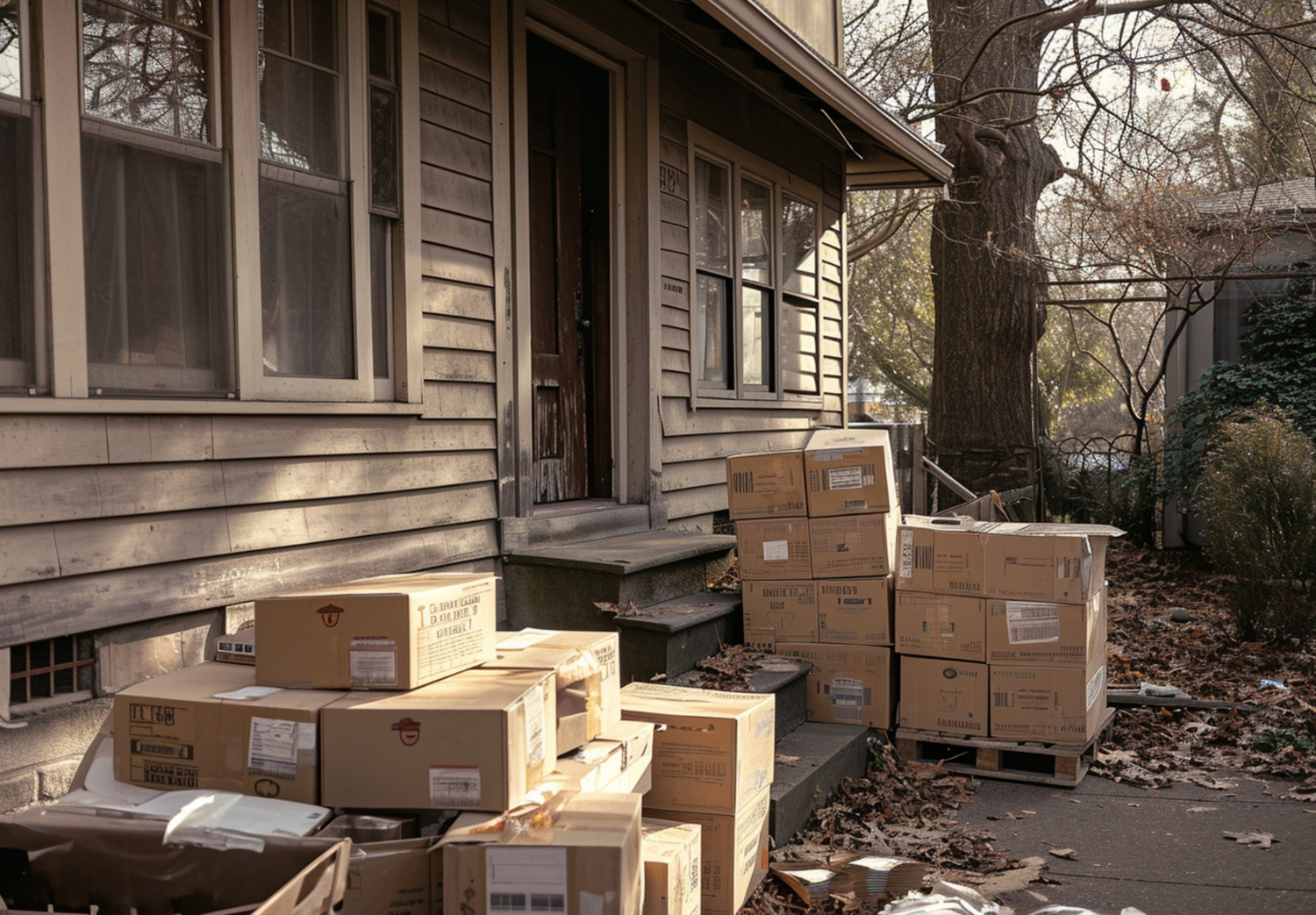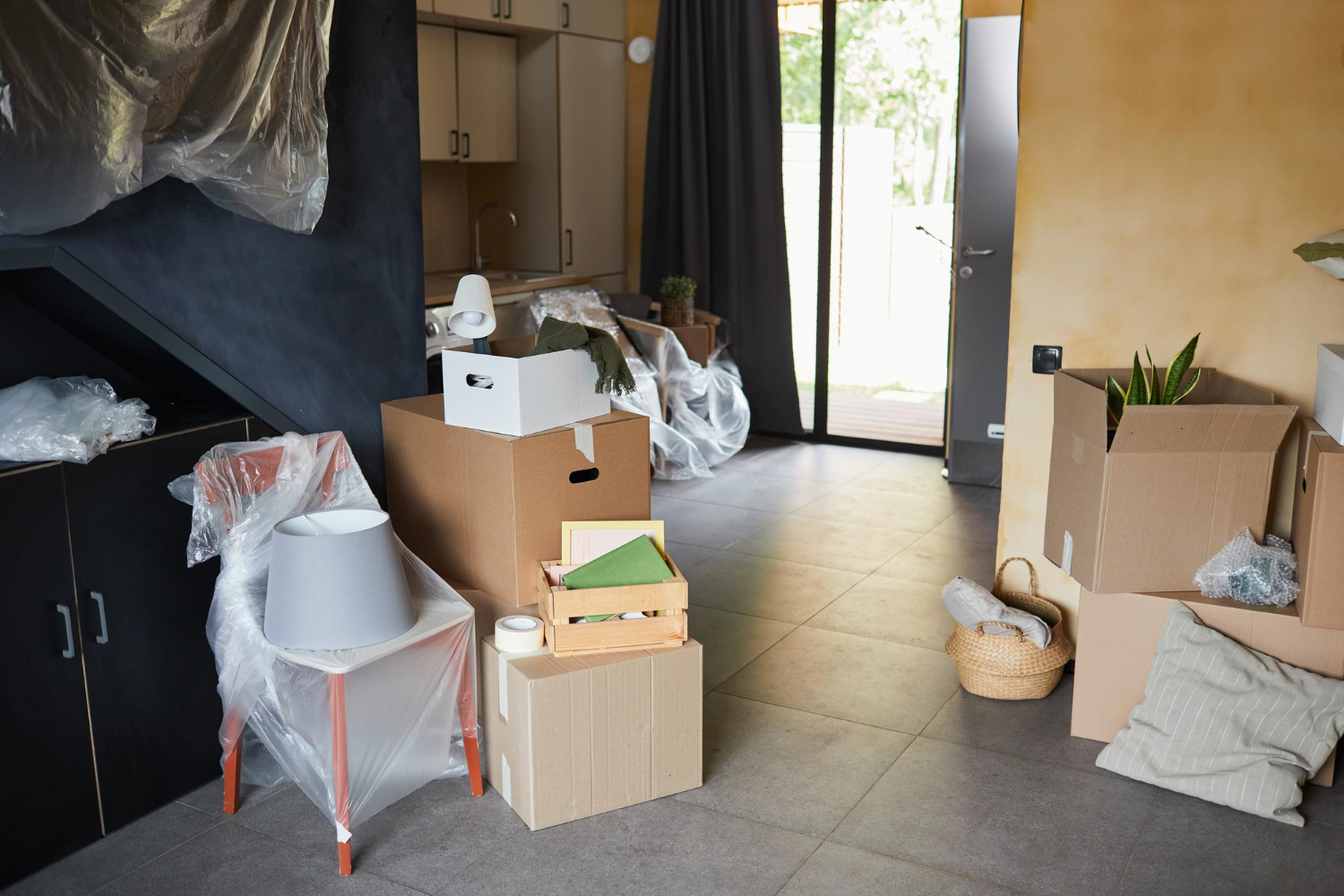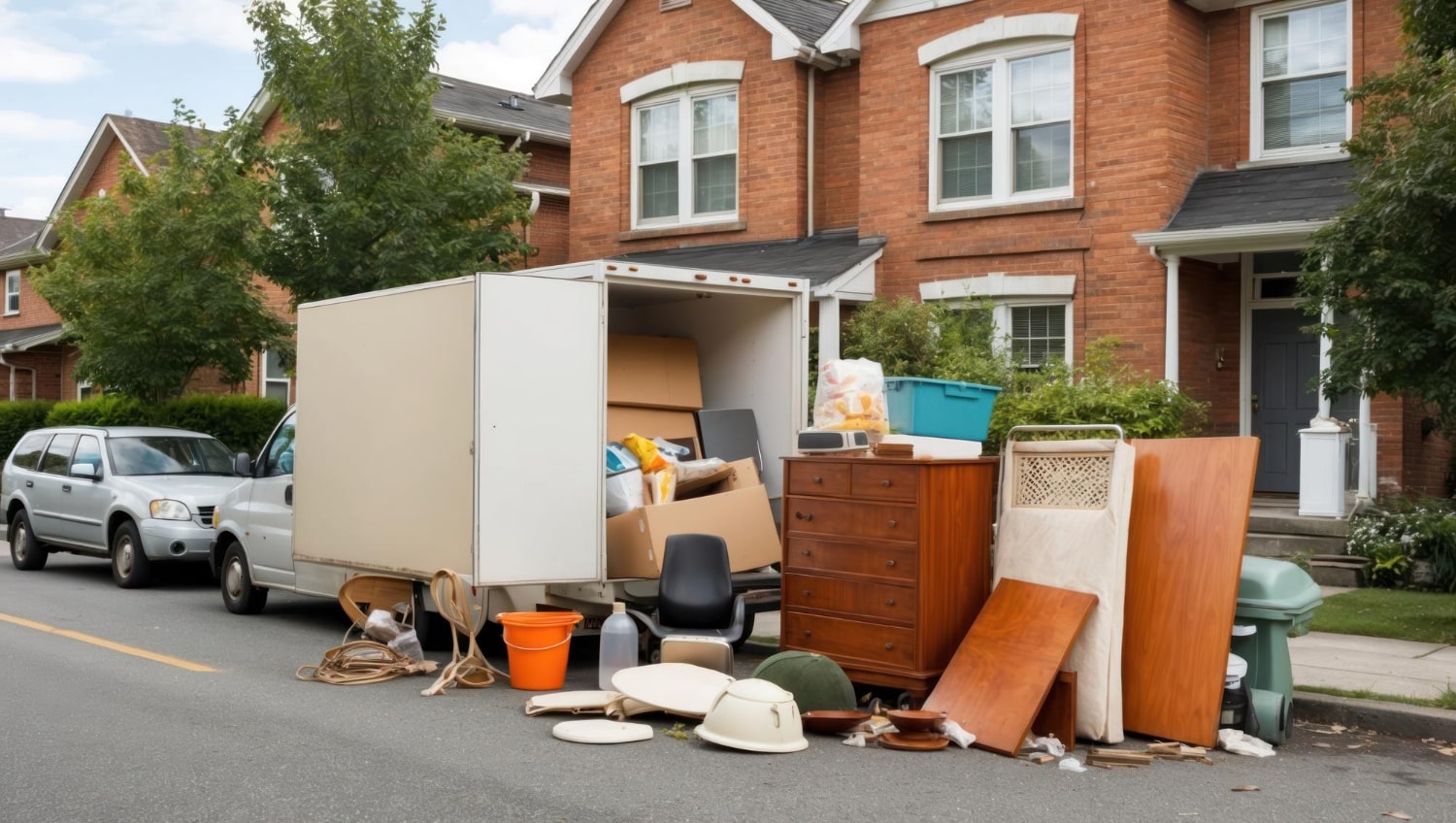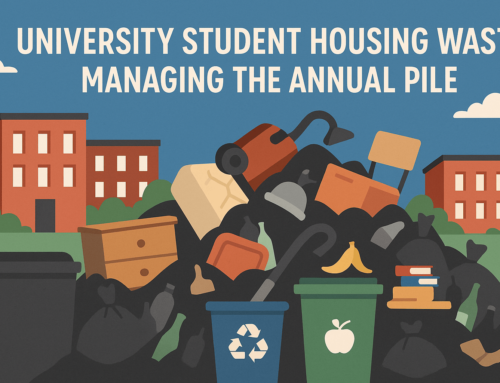A full house clearance in the UK typically costs between £325 and £595. This cost can vary based on the volume and type of items for removal. Selecting reputable house clearance providers is crucial, as they offer different services and pricing. If you’re wondering how much is a full house clearance cost, interested in knowing what contributes to these costs? Let’s explore the factors influencing house clearance pricing.
Key Takeaways
- The average cost for a full house clearance in the UK ranges from £325 to £595, influenced by the volume and weight of items removed.
- House clearance costs are generally broken down into item removal fees, labor costs, and transportation fees, with additional expenses for disposal, cleaning, and skip hire.
- Choosing a reputable clearance company with appropriate licensing and insurance is essential for ensuring proper waste disposal and liability protection during the clearance process.
- Verify if the house clearance company is approved by the local authority, ensuring they have a local authority license for the safe disposal of hazardous waste and other certifications like a VAT registration number.
Average Costs for Full House Clearance

In the UK, the typical expense for a full house clearance falls between £325 and £595. This amount is subject to change depending on how much material there is and its overall weight. The extent of house clearances can vary greatly, ranging from removing just several bulky or large items to emptying an entire home’s contents. Clearance companies tend to set their fees based on these criteria. Hence heavier and more sizable belongings will likely incur greater costs.
These average expenses provide a reference point that aids in creating a financial plan for clearance activities. Being aware of what affects these costs enables better forecasting of potential price changes and preparation for them.
Grasping the usual range of charges associated with either small-scale removals or complete household clearances streamlines the organization stage considerably.
Breakdown of Typical Charges
Grasping the composition of house clearance costs is crucial. Typically, these charges are divided into three main categories: fees for removing items, labor expenses, and transportation along with vehicle-related costs. To get an idea of what you might expect to pay for a house clearance, one can consult comparison websites or refer to entities such as the Anti-Fly Tipping Alliance which provide indicative rates.
Understanding these divisions helps shed light on how your money is allocated during the clearance process, promoting clear insight into the full cost breakdown.
Item Removal Fees
The cost of a house clearance can fluctuate depending on the size and type of items being removed. Bigger appliances such as fridge-freezers incur higher removal fees, with costs for clearing out something like a large fridge-freezer often reaching approximately £106.
Understanding these clearance costs is beneficial when preparing and budgeting for the disposal of either numerous or certain items or sizable possessions during a house clearance.
Labor Costs
The cost associated with labor is a major component of the total expenses incurred during house clearance. The extent and complexity of the task at hand can increase these costs, as larger houses Necessitate additional personnel for the more professional house clearance process.
Engaging professional house clearance companies typically results in quicker completion of the work compared to undertaking it yourself. This enhanced speed not only streamlines the process, but may also lead to lower overall labor costs, thereby offering a more economical option for clearing out a house.
Transportation and Vehicle Costs
Factors like fuel prices, the distance to be traveled, and the size of transport needed can substantially affect the overall cost involved in a house clearance. The need for larger vehicles for bigger clearances can lead to increased costs.
Additional Expenses to Consider

There can be supplementary charges. To the main expenses when undertaking a house clearance. These extra costs may stem from the payment of fees for waste disposal and recycling, employing cleaning services, as well as obtaining skip hire and necessary permits. Extra fees frequently accompany the removal of hazardous materials or any specialized cleaning tasks, which could increase the overall cost.
To prevent unforeseen charges during a house clearance, it’s beneficial to speak with your service provider about possible additional services that might incur extra costs prior to commencement.
Disposal and Recycling Fees
The expense of disposing and recycling items can become quite substantial, particularly with bulkier or cumbersome objects. Disposing of appliances like fridges or freezers usually results in an extra fee, which is about £100 for each item. In the same vein, getting rid of TVs and monitors carries a cost that hovers around £20 per unit, and smaller electronic gadgets could accrue a disposal charge close to £10 apiece.
Utilizing methods for eco-friendly disposal assists in reducing waste and bolsters the process of recycling.
Cleaning Services
The expense of professional cleaning services following a house clearance can fluctuate depending on the level of thoroughness required. Despite being an extra cost, this step guarantees that the property is maintained in immaculate condition, which is particularly important when getting it ready for sale or to welcome new residents.
Skip Hire and Permits
In cases of extensive house clearances, hiring a skip might be imperative. The expense associated with this can fluctuate based on the dimensions and variety of the skip needed. Substantial clearances could attract additional charges for the hire of skips, especially in situations where there is an abundance of waste to handle.
It’s important to acknowledge that permits may be necessary if you intend to position the skip on public property. Hence plan accordingly.
Factors Affecting Quotes for Full House Clearances
Numerous factors affect the pricing for comprehensive house clearances. The ease of access to the property, nature and state of possessions involved, as well as their total quantity, play a role. The dimensions of the house and its geographical situation can greatly alter expenses, along with particular requirements or any distinctive articles that necessitate careful management.
Acknowledging these aspects is beneficial in securing precise cost estimates and steering clear of unforeseen fees during clearance processes.
Property Accessibility
When planning a house clearance, it is important to be aware that restricted access to the property can lead to higher clearance costs. This is because narrow entryways or properties located on upper levels may require extra labor and specialized equipment, resulting in increased expenses.
Keep these considerations in mind during the organization of your house clearance as they might contribute to unforeseen additional charges.
Type and Condition of Items
The costs associated with clearance can be greatly influenced by both the nature and state of items to be removed. The necessity for additional movers is heightened when dealing with bigger objects, leading to extra measures and a rise in total expenses. The elimination of particular elements, particularly those that are cumbersome or hefty in weight, could demand extra labor and specialized machinery.
It’s essential to verify that the clearance company you choose operates in accordance with proper waste disposal methods as required under laws such as the Environmental Protection Act 1990 to ensure regulatory compliance.
Volume of Items
The overall costs of a clearance are directly impacted by the total amount of items that need to be removed, as this determines the size of both the team and the vehicle needed. When dealing with high volumes general waste, there is a need for more substantial vehicles and bigger teams, which in turn escalates the clearance costs.
When it comes to large clearances, additional premium fees may be incurred for hiring skips and their transportation.
Tips for Getting Accurate Quotes
To get precise estimates for house clearances, you need to follow a few important steps. First, assess whether the company is appropriate for your particular requirements and remember that initial quotes may not cover extra fees for supplementary services.
Make sure that the company you select provides adequate customer service and clear pricing to prevent unforeseen expenses from arising.
Detailed Inventory
A detailed inventory helps obtain accurate quotes good quality items, clears uncertainties about items needing removal, and avoids confusion during the clearance process.
This detailed list ensures that nothing is overlooked, and the quote reflects the actual work required.
Comparing Multiple Quotes
Utilizing a comparison site to evaluate multiple quotes can result in considerable cost savings, possibly decreasing house clearance expenses by as much as 70%. By comparing offers from various reputable companies, you can secure the most cost-effective solution for your house clearance requirements.
Checking for Hidden Costs
Asking for a detailed quote breakdown from the clearance company ensures that you are aware of all potential costs and can expect an accurate estimate that considers both goods involved and services needed.
Confirming that the company is equipped to handle all varieties of goods avoids surprise fees, contributing to an efficient clearance process.
Choosing the Right House Clearance Company

Selecting the right house clearance company and location is crucial for a successful clearance. Reputable house clearance providers bring the necessary skills and equipment to handle various items and ensure proper packing and disposal.
Verifying the company’s licensing, insurance, and reputation is essential to protect yourself and your property.
Licensing and Insurance
It’s essential to hire a clearance company with proper licenses to ensure they comply with legal disposal requirements. Choosing an insured company protects clients from potential liabilities during the clearance process.
Public Liability. Insurance, though it may increase the total price, offers crucial protection against property damage.
Reputation and Reviews
Online reviews and customer testimonials provide a window into the reputation of a company and the caliber of its services, allowing individuals to assess how effective their services are.
Waste Collection Registration Number
To ensure that goods are disposed of appropriately during clearances and to uphold legal and environmental regulations, it is essential to engage companies possessing a Waste Collection Registration Number. Refrain from employing firms lacking this critical registration.
Can You Make Money from Your Items?
Individuals can sometimes be lonely.
Council vs. Private Companies
Local authorities often impose more affordable rates for house clearance services than private firms. The extent of their house clearance service can be restricted. In contrast, private entities deliver a broader range of options with greater flexibility in scheduling and even have provisions for same-day service. It is important to verify if a house clearance company is approved by the local authority to ensure they are legitimate and adhere to regulations.
In terms of quality, private companies usually outperform local councils because they tend to enlist the expertise of a reliable and professional company to handle the various aspects of house clearance tasks.
DIY House Clearance: Is It Worth It?
Hiring professionals for house clearance is often more efficient than a DIY approach, saving significant time. A DIY approach allows full control over what to keep or dispose of, but can be lengthy enough time- and strenuous, potentially taking weeks during the house clearance process.
Sorting through personal items can be emotionally challenging, but also offers a chance to reflect and cherish memories. A hybrid approach lets individuals manage sentimental items while professionals handle the heavy lifting.
Eco-Friendly House Clearance Options
Options for house clearance that are environmentally friendly are on the rise. These companies might give away remaining unwanted items to charitable organizations or recycle them conscientiously. By separating waste accurately, recycling processes can be optimized and contamination of materials prevented.
By donating items that can still be used, you support nearby communities and decrease waste because these products get reused. Repurposing old furniture into usable pieces cuts down on the need to manufacture new ones.
Summary
Facing the prospect of a full house clearance can seem overwhelming, but having a clear grasp on the associated costs and procedures is essential for ensuring everything goes smoothly. It’s important to be aware of not just the average expenses involved but also potential additional charges so that you’re able to accurately budget and plan ahead. Several factors will influence your final quote, including how accessible your property is, the condition of items being cleared, and their total volume. Obtaining precise estimates upfront promotes transparency. When selecting a clearance company for this task, it’s vital to assess their licensing status, insurance coverage, and overall reputation in the market. Options range from local council services or private companies to handling things yourself—making informed choices here is critical. Adopting practices that are considerate of the environment isn’t only good for our planet—it could potentially lower your expenditure as well. By thoroughly preparing beforehand, managing a house clearance becomes an achievable objective instead of an insurmountable hurdle.





